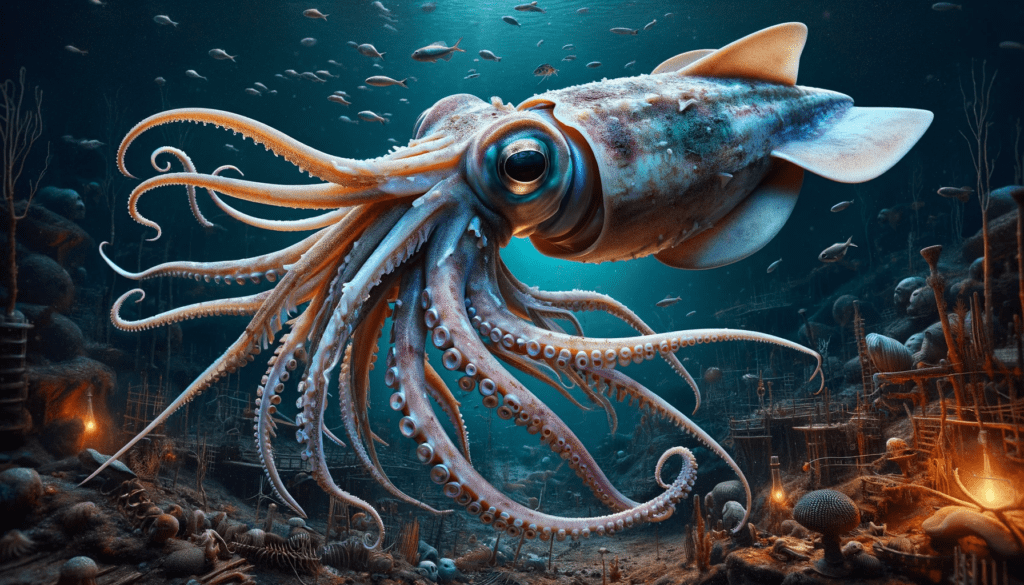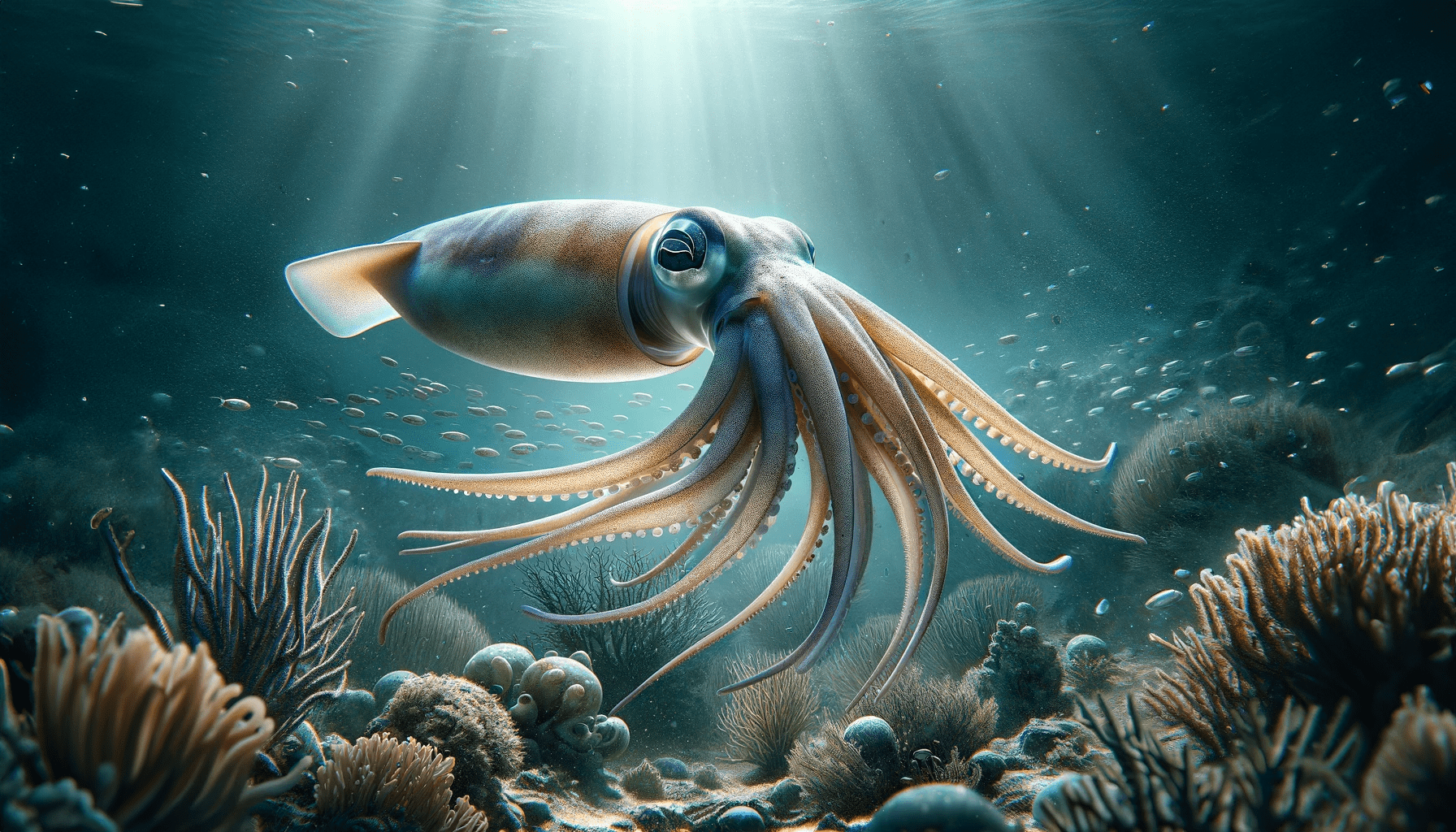Introduction to Squids
Cuttlefish are among the most fascinating creatures in our oceans. These mysterious and intelligent sea creatures have unique characteristics that set them apart from other sea creatures. In this blog, we discover the wonderful world of squids, their habitat, behavior, and why they play such an important role in the marine ecosystem.
Characteristics and Species
Unique Physiological Characteristics
Squids are mollusks and are part of the class Cephalopoda. They are known for their eight arms and two tentacles, which they use for movement and catching prey. Another remarkable feature is their ability to change color. They do this not only for camouflage, but also for communication with other cuttlefish.
Different Types of Squids
There are more than 300 species of squid, ranging from the small squid species to the giant squid. The giant squid is one of the largest and most mysterious species, known for its enormous size and deep-sea habitat.
Environment and Behavior
Their Natural Environment
Cuttlefish are found in all the world’s oceans, from the deepest depths to shallow coastal waters. They adapt to different environments, from coral reefs to open seas.
Intelligence and Social Behavior
Cuttlefish are known for their exceptional intelligence. They are capable of learning, problem solving, and have complex social behavior. Some species even show signs of playfulness and curiosity.
Importance to the Ecosystem
A Crucial Role in the Food Chain
Cuttlefish are both predators and prey, playing a crucial role in the marine food chain. They affect the population of other marine animals and help maintain the ecological balance.
Contribution to Scientific Research
Because of their unique physiology and behavior, cuttlefish are an important subject for scientific research. They offer insights into neural processes and may even contribute to technological innovations.
Conclusion
Squids are without a doubt one of the most fascinating creatures in our oceans. Their presence is essential to the health of the marine ecosystem, and they continue to fascinate scientists and naturalists with their complex behavior and unique adaptability.
The Difference Between Squids and Octopuses
Although squids and octopuses are often confused, there are some notable differences between these two fascinating marine animals. Both belong to the class of Cephalopoda, but they can be distinguished by their physical characteristics and behavior.
The most striking difference is the number of arms. Squids have eight arms and two tentacles, while octopuses have eight arms without tentacles. Squid tentacles are longer and thinner and are used to catch prey, while octopuses use their arms for both movement and catching food.
In terms of appearance, squids tend to have a more streamlined and pointed shape, ideal for fast swimming. Octopuses, on the other hand, have a rounder, bag-like shape, which makes them more maneuverable in rocky environments.
Another striking difference is their lifestyle. They are often found in open waters and are more solitary creatures, while octopuses are usually found in rocky coastal waters and have a more isolated lifestyle.
These differences highlight the diversity and adaptability of cephalopods, with each species uniquely adapted to its environment and way of life.
The History of the Squid
The History of the Squid is a fascinating journey through time, taking us back to the origins of these unique creatures. Squids are among the oldest and most evolved inhabitants of the sea, with fossils dating back to the Cambrian, about 500 million years ago.
Over the millennia, they have adapted remarkably to changing environments. Originally, many early forms of squid had an external shell similar to that of nautiluses, one of their few surviving ancestors. Over time, many species evolved to a more streamlined shape, losing or internalizing their shells to better navigate the water.
These evolutionary changes enabled the squid to become one of the ocean’s most versatile and agile predators. Their development of sophisticated senses and a complex nervous system contributed to their ability to survive and thrive in diverse marine environments.
The fascinating process of evolution remains a subject of research and admiration. Their long history and ability to adapt to changing ocean conditions makes them one of the most intriguing and resilient species in the marine world.



Leave a Reply